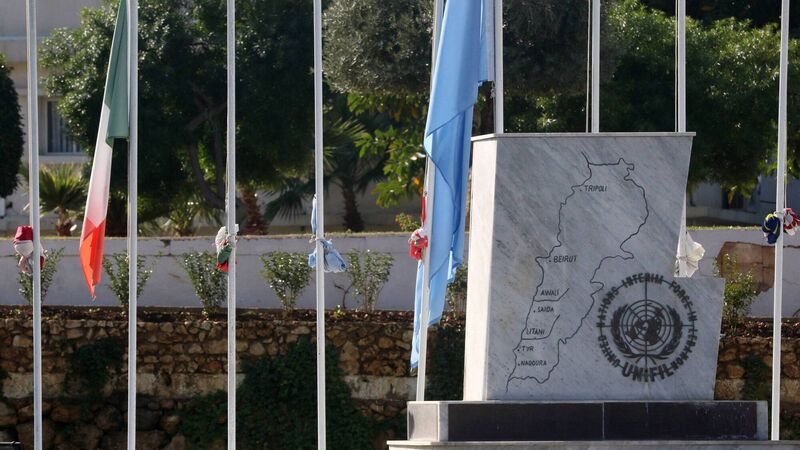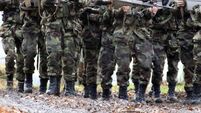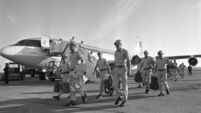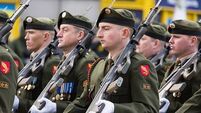Hannah McCarthy: Al-Aqbieh latest in a series of attacks on peacekeepers in South Lebanon

Irish and UN flags are flown half-mast at Unifil headquarters in the southern Lebanese town of Naqoura on Friday. Picture: Mahmoud Zayyat/AFP via Getty Images
The attack in South Lebanon which led to the tragic death of Private Sean Rooney and a serious injury to Trooper Shane Kearney is the latest in a series of hostile altercations between local groups and troops serving with the UN peacekeeping mission in Lebanon (Unifil).
In December 2021, a UN vehicle was vandalised near Bint Jbeil, a stronghold for the Iran-backed militia Hezbollah. The following month, in January 2022, UN patrols in South Lebanon were attacked twice, including around the village of Ramyeh, where a Ghanaian soldier was injured and equipment was stolen.
















